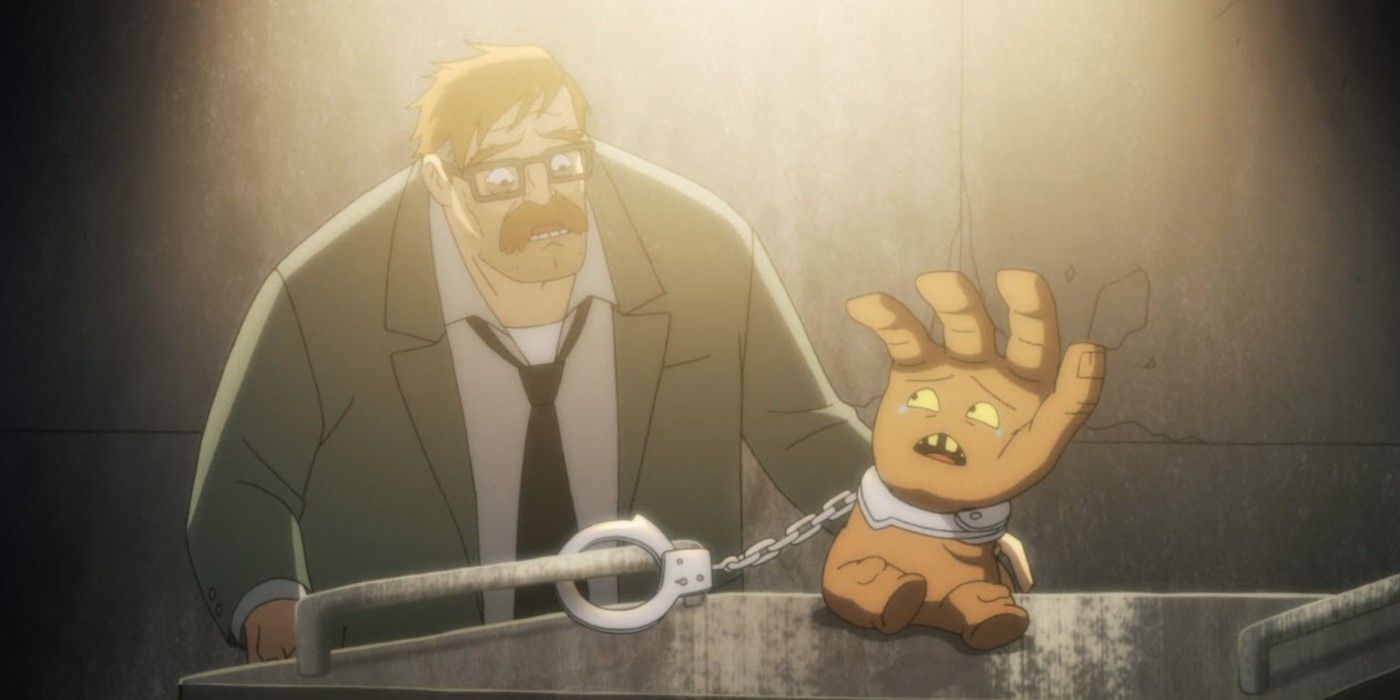Warning: The following contains SPOILERS for Harley Quinn, season 1, episode 6, “You’re a Damn Good Cop, Jim Gordon.”
The latest episode of DC Universe’s Harley Quinn confirms that its take on Commissioner Gordon is simultaneously the best and worst version of the character in any medium. The irony lies in how this interpretation of Gotham City’s top lawman is wholly accurate to the comics yet the portrayal of his character is almost entirely played for laughs.
It cannot be denied that Jim Gordon has a difficult job. In most of the Batman origin stories (such as Batman: Year One) Gordon started off as a GCPD Detective Lieutenant or a Captain, who became Police Commissioner by sheer virtue of being one of the few honest, hard-working cops in Gotham and the only one Batman can trust. This made him many enemies in the political machine that runs Gotham, even ignoring the many supervillains who call the city home and the organized crime families. The stress of the job also usually leads his wife Barbara to leave him.
Given all that, it would be expected that Jim Gordon might be a little bit stressed out after years of trying to manage a police department that is equal parts crooked and incompetent. The pilot episode of Harley Quinn played with this idea a bit, presenting a Commissioner Gordon who barked at a captured Harley like an angry dog and seemed to be seconds away from losing control and striking her. This take on Gordon was further explored in Harley Quinn, season 1, episode 6, “You’re a Damn Good Cop, Jim Gordon,” where an increasingly erratic Jim Gordon built a wholly inappropriate relationship with Clayface’s hand.

As the episode opened, Jim was having problems with his wife and needed someone to talk to. Desperate, he used the Bat-Signal to call Batman, who was wholly unsympathetic and couldn’t believe Gordon summoned him for something unrelated to crime in Gotham City. This leads him to take away the Bat-Signal and, to add insult to injury, he saddles Gordon with dealing with the physical evidence from Harley Quinn’s latest crime. In this case, the evidence is the severed hand of Clayface, which has developed its own child-like personality independent of the core of Clayface’s being.
Gordon tries to interrogate the clay appendage and learn where Harley’s gang is hiding out, but his “bad cop” routine only makes it cry. This leads Jim to volunteer too much information when trying to comfort the severed arm, venting about how his wife won’t let him touch her anymore and how Batman doesn’t want to spend time with him outside of work. Suddenly Jim is talking to the hand, who is a surprisingly good listener for someone without ears, and Gordon imagines an entire montage of playing basketball and poker with the hand after it asks him if they can be friends.
The comedic irony of Jim Gordon’s desperation to make a true human connection leading him to befriend a talking severed hand may be the most twisted thing yet presented in Harley Quinn. (This is saying something, given some of the other character portrayals in the series so far.) Yet despite Chris Meloni’s crazed performance, this take on Gotham City’s police commissioner is probably the truest portrayal of the character from the comics, at least in terms of his background being utilized and Jim Gordon being presented as something more than the guy who tells Batman what to do.




